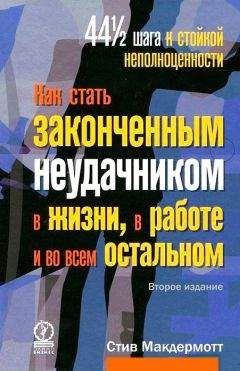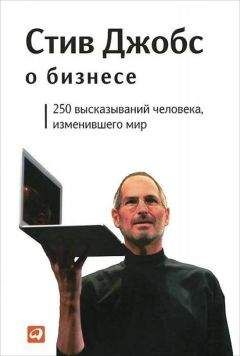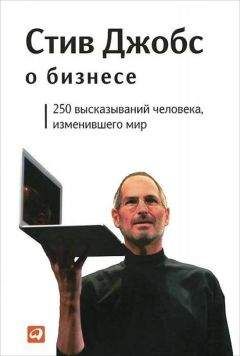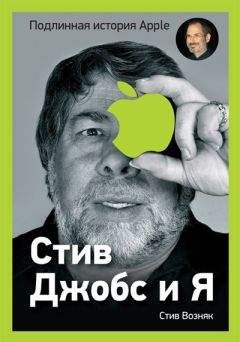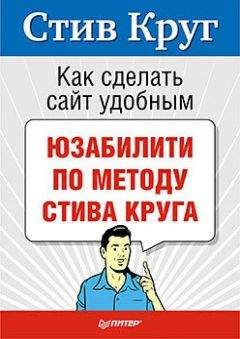Михаил Сарапов - Английский для смелых. Истории о духах и привидениях / Great Ghost Stories
Such a discovery might be thought worthy of more than the very ordinary interest Mr Batchel showed. As a matter of fact, the presence of a human bone was easily to be accounted for. Recent excavations within the church had caused the upturning of numberless bones, which had been collected and reverently buried. But an earth-stained bone is also easily overlooked, and this radius had obviously found its way into the garden with some of the earth brought out of the church.
Mr Batchel was glad, rather than regretful at this termination to his adventure. He was once more provided with something to do. The reinterment of such bones as this had been his constant care, and he decided at once to restore the bone to consecrated earth. The time seemed opportune. The eyes of the curious were closed in sleep, he himself was still alert and wakeful. The spade remained by his side and the bone in his hand. So he betook himself, there and then, to the churchyard. By the still generous light of the moon, he found a place where the earth yielded to his spade, and within a few minutes the bone was laid decently to earth, some 18 inches deep.
The city clocks struck one as he finished (когда он закончил, городские часы пробили час ночи). The whole world seemed asleep (весь мир, казалось, спал), and Mr Batchel slowly returned to the garden with his spade (и мистер Бэтчел медленно вернулся в сад со своей лопатой). As he hung it in its accustomed place he felt stealing over him the welcome desire to sleep (когда он вешал ее на привычное место, он почувствовал, как его одолевает долгожданная сонливость: «желание поспать»; to steal – воровать, красть; постепенно захватывать, овладевать; welcome – /прил./ желанный; долгожданный). He walked quietly on to the house and ascended to his room (он тихо прошел к дому и поднялся в свою комнату). It was now dark (теперь было темно): the moon had passed on and left the room in shadow (луна переместилась по небу и оставила его комнату в тени; to pass – идти; переходить, проходить, перемещаться). He lit a candle, and before undressing passed into the library (он зажег свечу и, прежде чем раздеться, прошел в библиотеку). He had an irresistible curiosity to see the passages in John Evelyn’s book which had so strangely adapted themselves to the events of the past hour (непреодолимое любопытство подстегивало его посмотреть: «у него было непреодолимое любопытство увидеть» те места в книге Джона Ивлина, которые так странно соответствовали: «приспосабливались к» событиям прошедшего часа).
In the library a last surprise awaited him (в библиотеке его ожидал последний сюрприз). The desk upon which the book had lain was empty (стол, на котором лежала книга, был пуст). ‘The Compleat Gard’ner’ stood in its place on the shelf («Полный справочник садовода» стоял на своем месте на полке). And then Mr Batchel knew that he had handled a bone of William Whitehead, and that in response to his own entreaty (и тогда мистер Бэтчел понял, что он захоронил кость Уильяма Уайтхэда, и причем в соответствии с его собственной просьбой; to know – знать; понимать; to handle – зд.: иметь дело; сталкиваться; управляться; in response to smth. – в ответ на что-либо; entreaty – мольба, просьба; to entreat – умолять, упрашивать).
The city clocks struck one as he finished. The whole world seemed asleep, and Mr Batchel slowly returned to the garden with his spade. As he hung it in its accustomed place he felt stealing over him the welcome desire to sleep. He walked quietly on to the house and ascended to his room. It was now dark: the moon had passed on and left the room in shadow. He lit a candle, and before undressing passed into the library. He had an irresistible curiosity to see the passages in John Evelyn’s book which had so strangely adapted themselves to the events of the past hour.
In the library a last surprise awaited him. The desk upon which the book had lain was empty. ‘The Compleat Gard’ner’ stood in its place on the shelf. And then Mr Batchel knew that he had handled a bone of William Whitehead, and that in response to his own entreaty.
The Confession of Charles Linkworth
(Признание Чарльза Линкворта)
E. F. Benson (Э. Ф. Бенсон)
Dr Teesdale had occasion to attend the condemned man once or twice during the week before his execution (в течение недели перед казнью доктор Тисдейл раз или два: «однажды или дважды» имел возможность посетить приговоренного к смерти: «приговоренного человека»), and found him, as is often the case, when his last hope of life has vanished, quiet and perfectly resigned to his fate (и обнаружил, что тот, как часто бывает, когда исчезает последняя возможность сохранить жизнь: «надежда на жизнь», спокоен и совершенно примирился со своей судьбой; case – случай; положение; дело; resigned – покорный, безропотный, послушный; смирившийся), and not seeming to look forward with any dread to the morning that each hour that passed brought nearer and nearer (и, казалось, без всякого страха ожидал того утра, что каждый уходящий час приносил все ближе и ближе; to look forward to smth. – ожидать с нетерпением чего-либо, предвкушать что-либо). The bitterness of death appeared to be over for him (казалось, горечь смерти его уже миновала; to be over – закончиться, пройти): it was done with when he was told that his appeal was refused (с этим было покончено, когда ему сказали, что его апелляция отвергнута). But for those days while hope was not yet quite abandoned (но в те дни, когда надежда не вполне еще его покинула; to abandon – покидать, оставлять), the wretched man had drunk of death daily (несчастный постоянно жил с мыслью о смерти: «ежедневно испивал смерти»; to drink – пить). In all his experience the doctor had never seen a man so wildly and passionately tenacious of life (за всю свою практику доктор никогда еще не видел ни человека, так страстно и исступленно привязанного к жизни; wild – дикий; бурный, необузданный; исступленный; tenacious – цепкий), nor one so strongly knit to this material world by the sheer animal lust of living (ни того, кто так же сильно был прикован к этому материальному миру чисто животной жаждой жизни; to knit – вязать; соединять, скреплять; сращивать; lust – вожделение, похоть; /поэт./ страсть, жажда). Then the news that hope could no longer be entertained was told him (затем ему сообщили известие, что нельзя более питать никаких надежд; to entertain – зд.: питать /какие-либо чувства/), and his spirit passed out of the grip of that agony of torture and suspense (и его дух вырвался из хватки этой агонии мук и неопределенности; to grip – схватить; сжать), and accepted the inevitable with indifference (и с безразличием смирился с неизбежным). Yet the change was so extraordinary (и все же перемена была столь разительной) that it seemed to the doctor rather that the news had completely stunned his powers of feeling (что доктору казалось, что, скорее, это известие полностью парализовало его способность чувствовать; to stun – оглушить ударом), and he was below the numbed surface, still knit into material things as strongly as ever (а он под этой онемевшей поверхностью был привязан к материальному столь же сильно, что и раньше; to numb – вызывать онемение, окоченение; numb – онемелый, оцепенелый, неподвижный). He had fainted when the result was told him (он упал в обморок, когда ему сообщили, что апелляция отклонена: «результат»; to faint – падать в обморок), and Dr Teesdale had been called in to attend him (и доктора Тисдейла пригласили /к нему/, чтобы оказать помощь; to attend – посещать; оказывать помощь). But the fit was but transient (но это была лишь временная слабость; fit – припадок, приступ; transient – кратковременный, недолговечный, преходящий), and he came out of it into full consciousness of what had happened (и он очнулся с полным сознанием: «вышел из него в полное осознание» того, что случилось).
Dr Teesdale had occasion to attend the condemned man once or twice during the week before his execution, and found him, as is often the case, when his last hope of life has vanished, quiet and perfectly resigned to his fate, and not seeming to look forward with any dread to the morning that each hour that passed brought nearer and nearer. The bitterness of death appeared to be over for him: it was done with when he was told that his appeal was refused. But for those days while hope was not yet quite abandoned, the wretched man had drunk of death daily. In all his experience the doctor had never seen a man so wildly and passionately tenacious of life, nor one so strongly knit to this material world by the sheer animal lust of living. Then the news that hope could no longer be entertained was told him, and his spirit passed out of the grip of that agony of torture and suspense, and accepted the inevitable with indifference. Yet the change was so extraordinary that it seemed to the doctor rather that the news had completely stunned his powers of feeling, and he was below the numbed surface, still knit into material things as strongly as ever. He had fainted when the result was told him, and Dr Teesdale had been called in to attend him. But the fit was but transient, and he came out of it into full consciousness of what had happened.
The murder had been a deed of peculiar horror (убийство, им совершенное: «это убийство», было из ряда вон ужасным; deed – действие, деяние; peculiar – особенный; своеобразный; необычный; horror – ужас), and there was nothing of sympathy in the mind of the public towards the perpetrator (и в общественном мнении не было и следа сочувствия по отношению к преступнику; mind – ум, разум; public – публика; общественность). Charles Linkworth, who now lay under capital sentence (Чарльз Линкворт, которому теперь был вынесен смертный приговор; to lay – класть; налагать; накладывать; capital – главный; тяжкий, караемый смертью; sentence – предложение, фраза; приговор, обвинительное заключение), was the keeper of a small stationery store in Sheffield (был владельцем небольшого магазинчика канцелярских товаров в Шеффилде; keeper – смотритель, хранитель; владелец, держатель /предприятия, ценных бумаг/; stationery – канцелярские товары; канцелярские принадлежности), and there lived with him his wife and mother (и там жили с ним его жена и мать). The latter was the victim of his atrocious crime (последняя и была жертвой его ужасающего преступления); the motive of it being to get possession of the sum of five hundred pounds, which was this woman’s property (а мотивом было /стремление/ получить сумму в пятьсот фунтов стерлингов, которые являлись собственностью этой женщины; property – имущество; собственность; состояние). Linkworth, as came out at the trial, was in debt to the extent of a hundred pounds at the time (Линкворт, как выяснилось на суде, был в то время в долгу на сумму в сто фунтов; extent – пространство, протяжение; размер, величина), and during his wife’s absence from home on a visit to relations, he strangled his mother (и во время отсутствия своей жены – она наносила визит родственникам = гостила у родственников – он задушил свою мать), and during the night buried the body in the small back-garden of his house (и ночью: «в течение ночи» зарыл тело в маленьком садике за своим домом; to bury – хоронить, предавать земле; back – задний, с тыльной стороны). On his wife’s return, he had a sufficiently plausible tale to account for the elder Mrs Linkworth’s disappearance (по возвращении жены у него была достаточно правдоподобная история = к возвращению жены он сочинил достаточно правдоподобную историю, чтобы объяснить исчезновение старшей миссис Линкворт; plausible – благовидный, внешне честный или правдоподобный; elder – сравн. ст. от ‘old’; старший /по возрасту/), for there had been constant jarrings and bickerings between him and his mother for the last year or two (так как на протяжении последнего года или двух он постоянно конфликтовал и ссорился со своей матерью; to jar – издавать неприятный, резкий звук; вступать в конфликт, ссориться; to bicker – пререкаться, спорить), and she had more than once threatened to withdraw herself and the eight shillings a week which she contributed to household expenses (и она неоднократно угрожала, что /и/ сама уйдет, и /не будет больше давать/ те восемь шиллингов в неделю, что она вносила в качестве своей доли в домашних расходах; to withdraw – ретироваться, удаляться, уходить; забирать; отзывать; to contribute – вносить вклад, делать взносы), and purchase an annuity with her money (вложит деньги в аннуитет и будет жить на ренту; to purchase – покупать, приобретать; annuity – аннуитет, финансовая рента[27]). It was true, also, that during the younger Mrs Linkworth’s absence from home, mother and son had had a violent quarrel (было также правдой, что во время отъезда: «отсутствия из дома» молодой: «младшей» миссис Линкворт мать и сын крупно поссорились; young – молодой, юный; молодой, младший /прибавляется перед именем – чтобы в одной семье различать двух людей с одинаковыми именами/; violent – неистовый, яростный; quarrel – ссора) arising originally from some trivial point in household management (чему причиной послужила какая-то мелочь по поводу ведения домашнего хозяйства; to arise – возникать, появляться; происходить, являться результатом; originally – первоначально, сначала; trivial – банальный, незначительный, мелкий; point – точка; пункт; момент; вопрос), and that in consequence of this, she had actually drawn her money out of the bank (и, как следствие этого, она в самом деле сняла в банке свои деньги), intending to leave Sheffield next day and settle in London, where she had friends (намереваясь на следующий день уехать из Шеффилда и поселиться в Лондоне, где у нее были друзья). That evening she told him this, and during the night he killed her (в тот вечер она сказала ему это, а ночью он ее убил).
